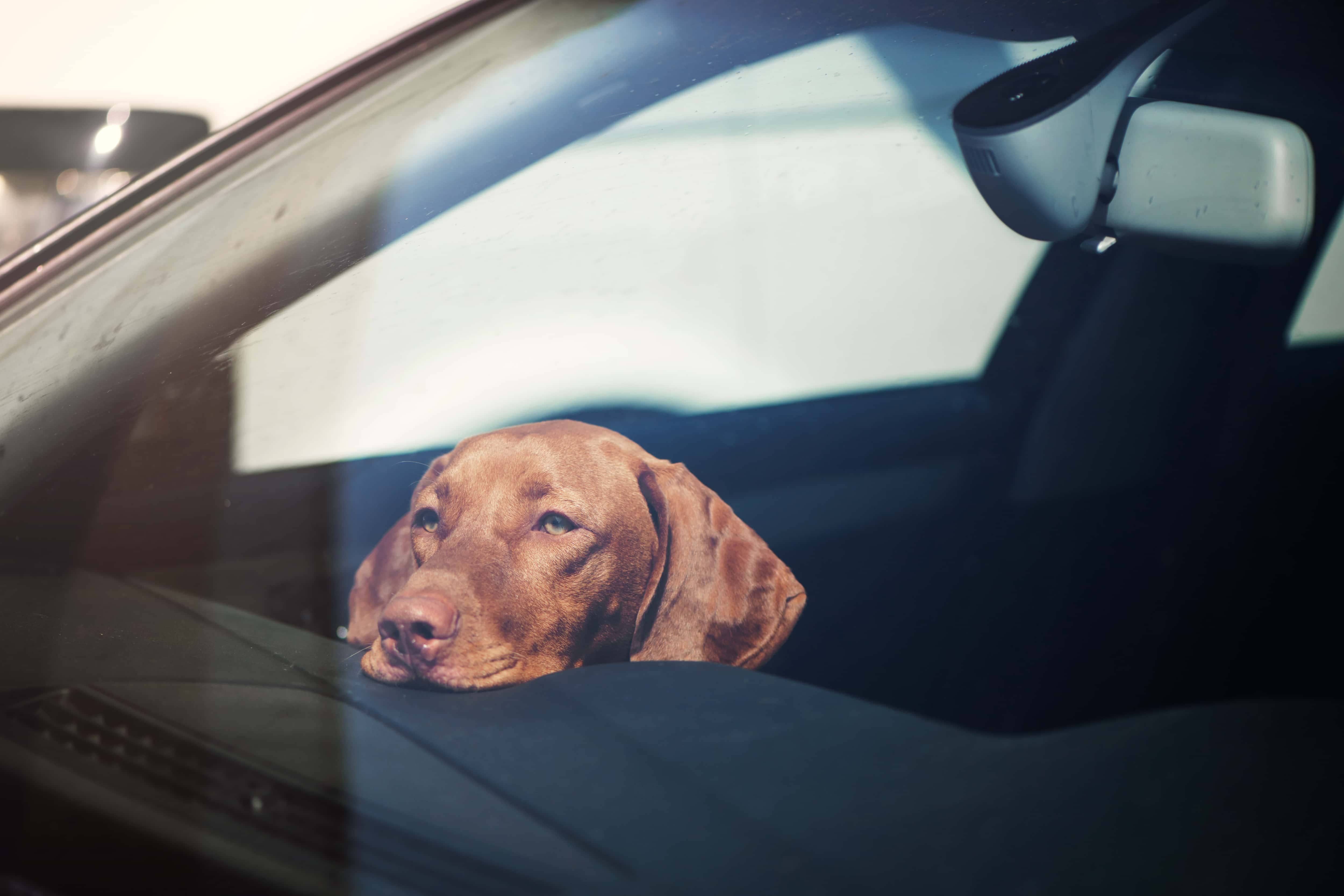
Never leave your pet unattended in a parked car for any period of time. ON A WARM DAY, the temperature in a car can exceed 120° in a matter of minutes—even with the windows partially open. Your pet can quickly suffer brain damage or die from heatstroke or suffocation.
IF YOUR PET IS EXPOSED TO HIGH TEMPERATURES
- Look for signs of heat stress—heavy panting, glazed eyes, a rapid pulse, unsteadiness, a staggering gait, vomiting or a deep red or purple tongue
- If your pet is overheated, move the pet to a cooler area and take these emergency steps:
- Gradually lower the pet’s body temperature by sprinkling cool water on him. Do not soak him in cool or cold water because his temperature could drop too low.
- Place cool, wet towels over the back of the neck, in the armpits, and in the groin area. You may also wet the ear flaps and paws with cool water. Direct a fan on the wet areas to speed evaporative cooling.
- You may offer fresh, cool water if your dog is alert and wants to drink. Do not force your pet to drink.
- Take your pet immediately to a veterinarian—it could save his life. Call ahead, if possible, to be sure your veterinarian is available.
- If you see an animal in a car exhibiting signs of heat stress, call your local animal care and control agency or police department immediately and take the following steps:
- Get the vehicle’s tag number and enter the nearest store or business to request an emergency announcement be made about a pet left in a hot car.
- Go back and wait for the police at the vehicle.
HEAT STRESS IS NOT THE ONLY DANGER YOUR PET FACES
When left alone in a car, many pets are stolen each year from unattended cars. Many pets prefer to stay home, but if you must take your pet with you in your car, do so safely:
- Cats should ride in pet carriers, and dogs should ride in travel crates or wear a safety harness.
- When a pet travels, he should wear two ID tags—one with a home address and one with a destination address.
For more information about pet care, visit humanesociety.org/pets.
**This content is sourced from the Humane Society of the United States.**











